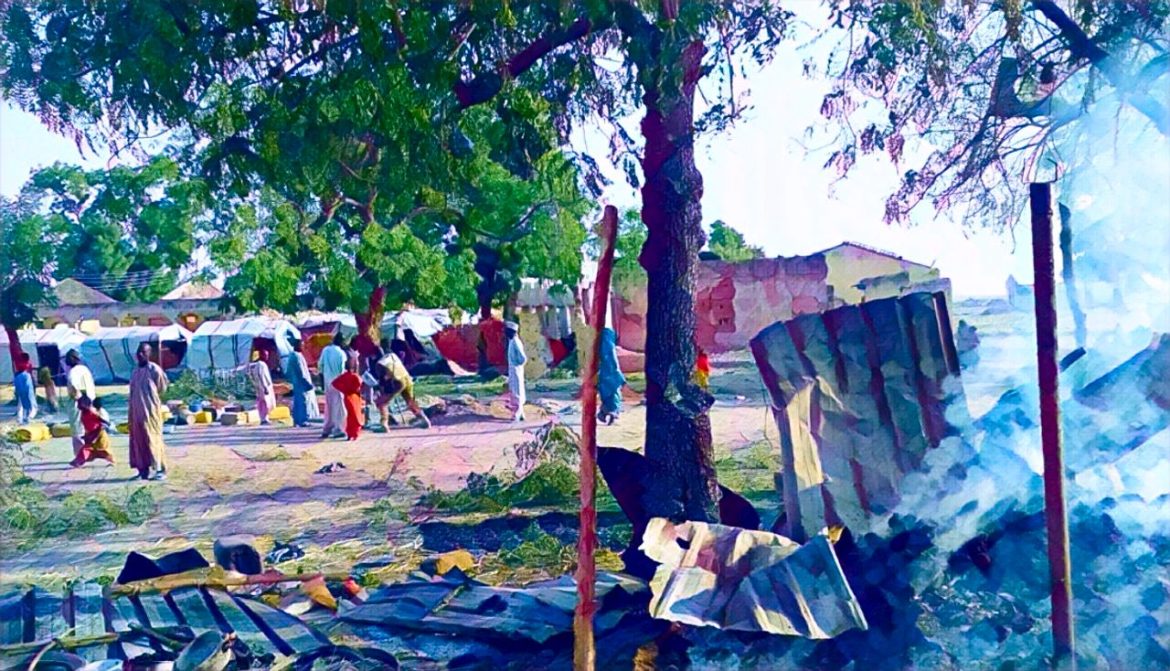KEY POINTS
-
Nigeria religious tensions continue despite ongoing community peace efforts.
-
Local leaders coordinate to rebuild trust between Muslims and Christians.
-
Reconstructing destroyed homes and places of worship remains a priority.
On a brisk November morning in central Nigeria, local council members convened with religious leaders at the palace of the traditional ruler for a dialogue aimed at maintaining months of tenuous tranquility. Their encounter occurred as former US President Donald Trump escalates assertions that Christians are being persecuted in Africa’s most populous nation, an allegation that has generated unease in a country grappling with its intricate blend of faith, identity, and security issues.
Nigeria religious tensions prompt local dialogue
Nigeria, with a population approaching 230 million, is bifurcated into a mostly Christian south and a Muslim-majority north. It is a large nation characterized by multiple overlapping conflicts, notably a protracted Islamist insurgency in the northeast. Analysts monitoring the violence indicate that armed factions frequently target neighborhoods indiscriminately, resulting in comparable fatalities among Christians and Muslims.
Trump has cautioned that the United States may undertake military intervention in Nigeria to halt what he characterized as extensive massacres of Christians by extremist Islamist factions.
Mangu, an agricultural village in Plateau State some 250 kilometers from Abuja, has had its own terrible tragedy. Last year, conflicts erupted in areas inhabited by both Christians and Muslims.
Efforts continue to ease Nigeria religious tensions
At the hardware market, 37-year-old resident Muhammad Kamilu Aliu expressed the community’s gratitude for the restored calm. “There is no longer a crisis here,” he stated. District chairman Moses Dawop reiterated the remark, stating that the serenity long sought by people is beginning to establish itself.
Nevertheless, officials assert that the task remains incomplete. Timothy Samson Dalang, the leader of the Christian Association of Nigeria in the region, and the town’s imam, Ibrahim Hudu Manomi, assert that restoring confidence has required considerable time and sustained effort.
According to The Guardian, the reconstruction process has progressed slowly. Residences, educational institutions, and places of worship obliterated in the conflicts lie in devastation.
Trump’s admonitions have disturbed people who argue that the portrayal of religious persecution does not align with their actual experiences.
“This will revert us to the initial stage,” stated Ghazali Isma’ila Adam, chief imam of Jos, the capital of Plateau state. In Maiduguri, the epicenter of the 16-year struggle with jihadists, 54-year-old restaurateur Idris Suleiman Gimba stated that extremists target individuals of all backgrounds. In 2014, Gimba lost ten relatives in a mosque explosion in Yobe State.
In northeastern Kano, political science instructor Saidu Sufi stated that criminal organizations frequently cloak their activities in religious rhetoric, despite their motivations being mostly unrelated to faith. “They commence by citing scripture, yet it lacks a religious context,” he stated.


